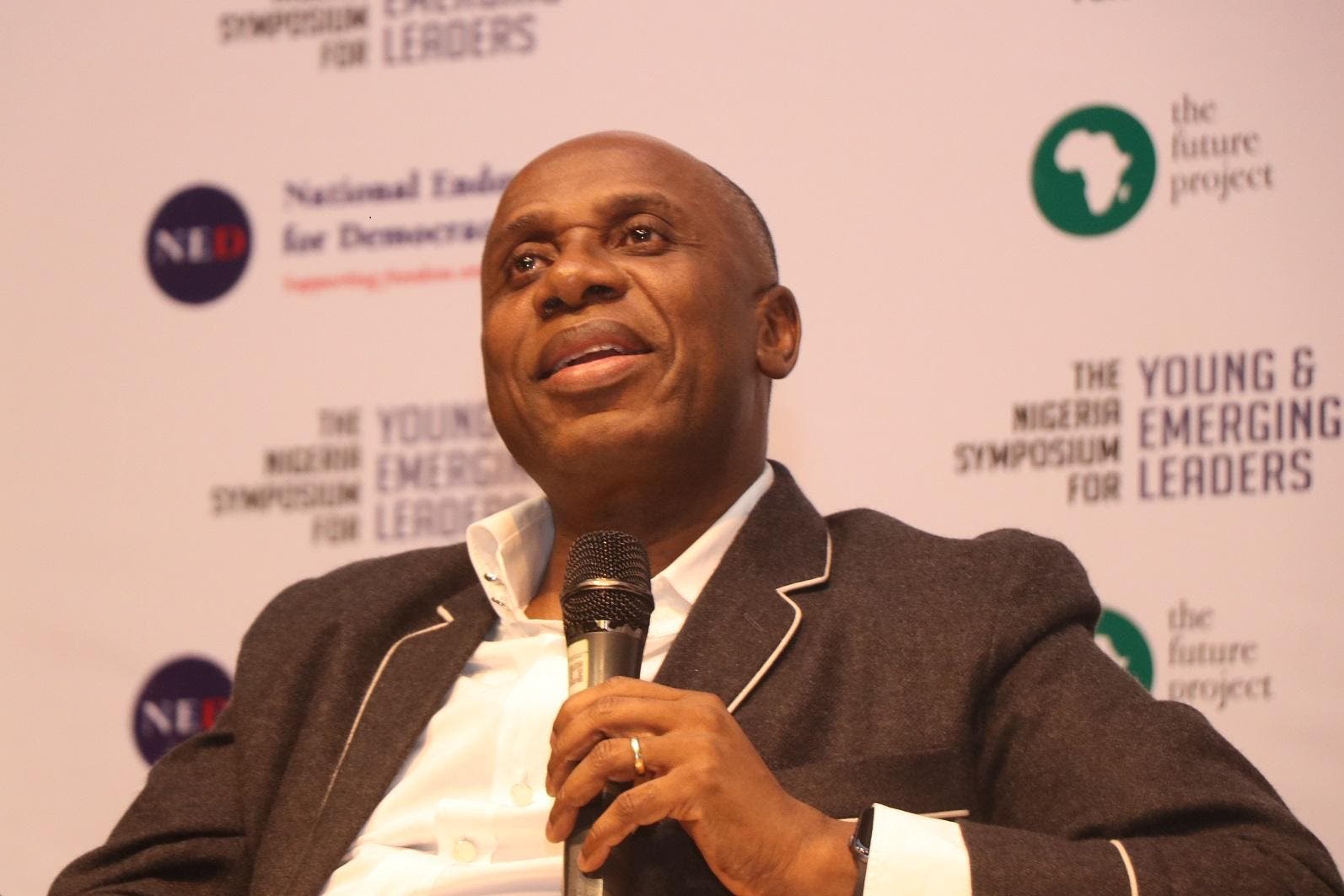ABUJA, Nigeria – Rotimi Amaechi, former transportation minister and former governor of Rivers State, has once again voiced strong opposition to President Bola Tinubu’s declaration of a state of emergency in the state.
In an interview with DW Africa on Friday, March 28, 2025, Amaechi condemned the president’s actions, labelling the move as politically motivated and an attack on democratic processes.
On March 18, 2025, President Tinubu declared a state of emergency in Rivers, citing ongoing political unrest and the vandalism of oil facilities as key reasons for the decision.
This led to the suspension of Governor Siminalayi Fubara, his deputy, Ngozi Odu, and all members of the state’s House of Assembly for six months.
Tinubu also appointed Ibok-Ete Ibas as the sole administrator of the state.
The declaration has sparked considerable opposition, with critics, including civil society groups and the Nigerian Bar Association (NBA), calling the move unconstitutional.
They argue that it undermines democratic governance.
Amaechi, a key figure in Nigerian politics and former Governor of Rivers State, expressed his disapproval of the emergency rule, claiming that it was an attempt to intimidate other governors.
“It is between the president and the FCT minister. The president wants a power grab. They want to frighten governors who may not support them in 2027,” Amaechi said.
“There’s a rumour everywhere that if you are not careful, the president will remove you.”
The former governor further questioned the justification for the emergency rule, particularly in light of ongoing insecurity in other parts of the country.
“If the president said it is because of insecurity, because they blew the pipeline, what about other parts of the country where there is insecurity?” Amaechi argued.
“Is the president saying they should impose emergency rule on him too? They can’t because he is a democratically elected president.”
Amaechi also pointed out that the responsibility for security lies with the president, not the governor.
He stated, “Rivers governor has no security responsibility; it rests squarely on the president. So why punish a man who did not commit an offence?”
He criticised President Tinubu’s actions as being outside the bounds of the Constitution.
Citing Section 188, which outlines how a governor can leave office—by death, resignation, or impeachment—Amaechi argued that the president’s decision to suspend Fubara was unconstitutional and destabilising for democracy.
“It didn’t say that one day you wake up and a man called the president of Nigeria will throw you out of office, which makes democracy unstable,” he said.
Amaechi urged the people of Rivers State to resist the emergency rule and engage in democratic protests to express their opposition to the president’s actions.
He also spoke on the ongoing feud between Governor Fubara and the Minister of the Federal Capital Territory, Nyesom Wike, suggesting that the dispute was about financial interests rather than any deeper political issue.
“The fight between the current governor of Rivers State and the FCT minister is about sharing money. If not, what is the quarrel?” he asked.
“Can both of them speak to the public and tell us what the problem is?”
Amaechi concluded by stating that the imposition of emergency rule in Rivers State has effectively denied its citizens democracy.
“We are now denied democracy. Rivers State is the only state in the country currently not enjoying democracy. They have imposed military rule on us,” he said.







